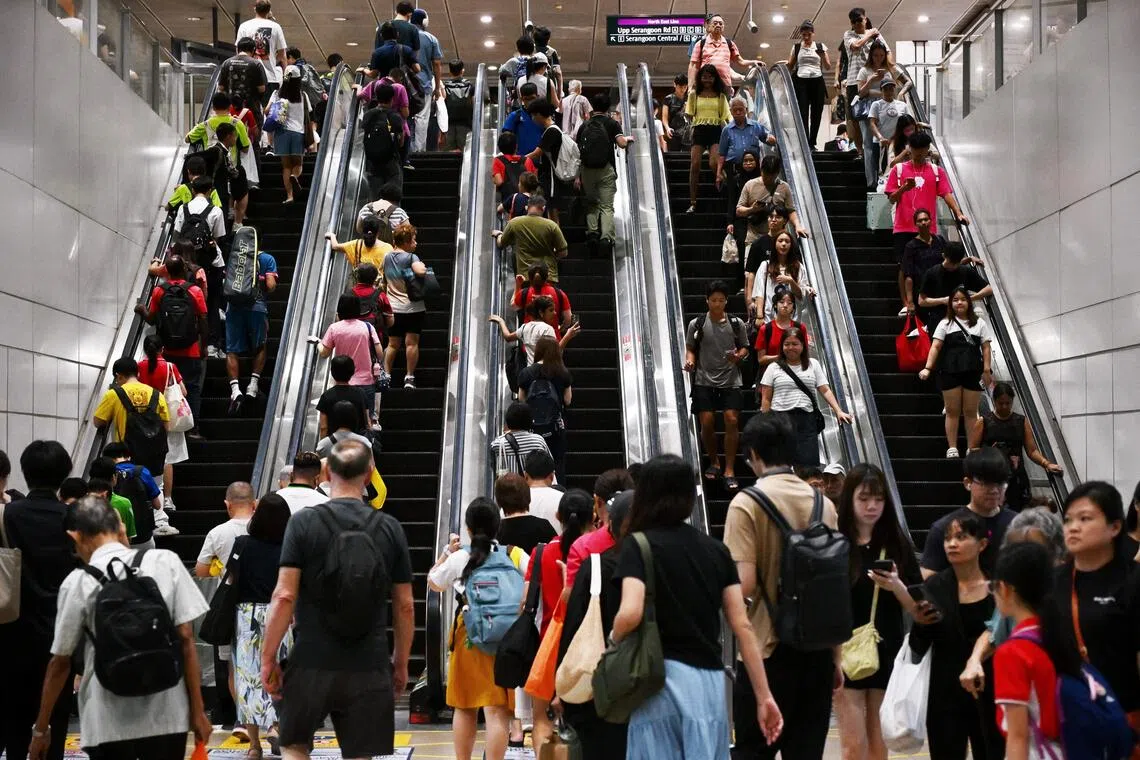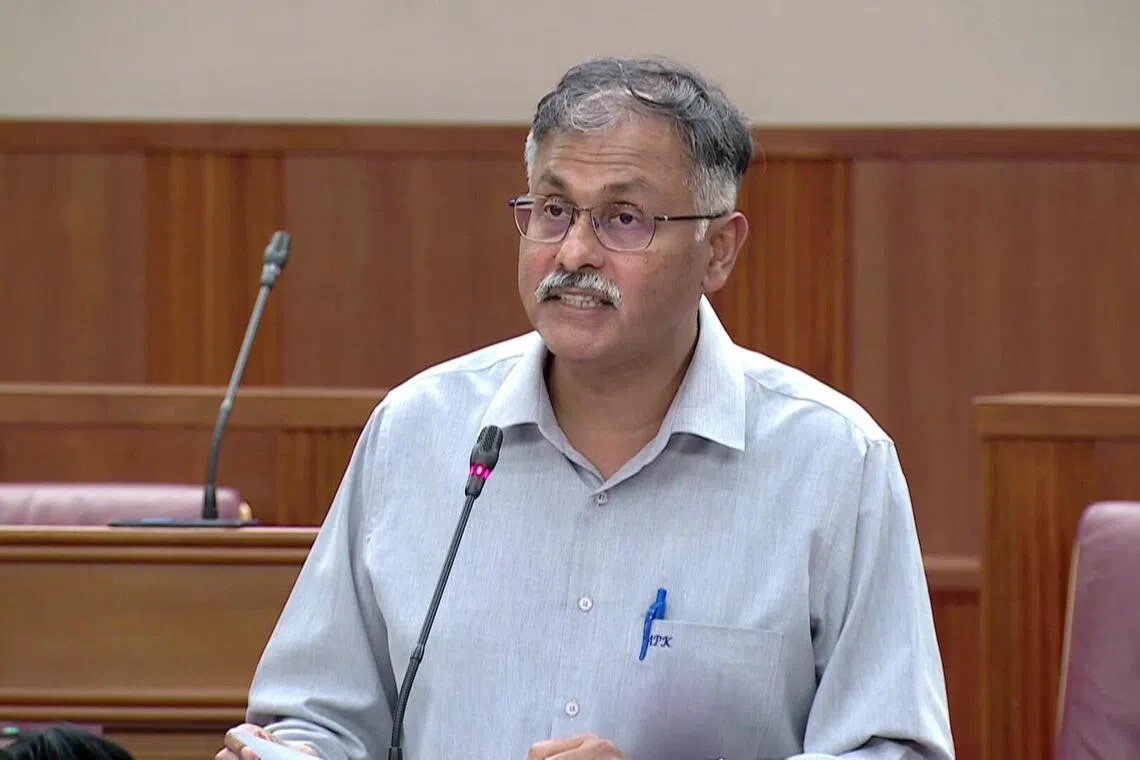‘We need to work hard to win back support of frustrated S’poreans’: Murali on rail disruptions
Sign up now: Get ST's newsletters delivered to your inbox

Between July and September, there were at least 15 disruptions across the MRT network, raising questions about the overall reliability of the rail system.
ST PHOTO: KUA CHEE SIONG
Follow topic:
- The government acknowledges commuter frustration over frequent rail disruptions and aims to regain public trust by improving service reliability.
- To enhance rail reliability, the government will invest $1 billion over five years and implement new rail lines, including Circle, Jurong and Cross Island.
- Cyberattacks pose unprecedented security challenges, thus LTA, CAAS and MPA have established cybersecurity operations centres to detect threats.
AI generated
SINGAPORE - The Government needs to work hard to win back the support of frustrated Singaporeans affected by rail disruptions, said Senior Minister of State for Transport Murali Pillai.
In his speech during the debate on the President’s Address, Mr Murali acknowledged that failure in transport service is a “justified cause for frustration and disappointment”, given Singapore’s hard-earned reputation for reliability and predictability.
Between July and September, there were at least 15 disruptions
Mr Murali said the Government will invest to reduce rail disruptions, but these will not be eliminated entirely.
“I don’t take pleasure in saying this, but this is the hard truth,” he told the House on Sept 26.
When disruptions happen, the Government will ensure service is recovered as quickly as possible, he said, adding: “We will communicate with commuters and help them find alternative routes.”
Mr Murali said the Government is building new rail lines that will improve the resilience of the rail network by providing commuters with more alternative routes.
Upcoming rail projects include stage six of the Circle Line with three stations between HarbourFront and Marina Bay that will open in 2026, the Jurong Region Line (JRL) that will open in stages from 2027 to 2029,
On improving reliability, Mr Murali noted that the Government will invest $1 billion over the next five years to improve the monitoring and maintenance of rail assets, as well as improve the capabilities of staff who carry out such work.
A rail reliability task force
He welcomed ideas from MPs to improve Singapore’s transport infrastructure.
“At the same time, I am sure you would agree that we should forbear from cheap shots and low blows when things go wrong,” he said.

Senior Minister of State for Transport Murali Pillai said failure in transport service is a “justified cause for frustration”.
PHOTO: MDDI
“Never exploit problems. But by all means, let us work on the problems even as we tackle the challenges of today.”
Turning to technology, Mr Murali said new innovations can improve the efficiency and productivity of transportation systems.
But he also flagged the “unprecedented security challenges” posed by cyber attacks.
Transport infrastructure is a prime target for malicious actors, given its critical role in the economy and daily lives, Mr Murali said.
He cited three cyber attacks on transport infrastructure that occurred across air, land and sea.
In July 2023, a cyber attack disrupted container-handling operations at Nagoya Port, Japan’s largest maritime hub. In September 2024, Transport for London suffered an attack on its computer systems that lasted for three months.
On Sept 19, several major European airports were hit by a cyber attack on the provider of check-in and boarding systems, leading to flight delays and cancellations.
To secure the Republic’s critical infrastructure, the LTA, Civil Aviation Authority of Singapore and Maritime and Port Authority of Singapore have set up cyber-security operations centres to detect threats, he said.
Mr Murali noted that the use of new technologies in the transport sector also creates new job opportunities.
The Government is working with the industry, unions and education partners to train workers and ensure they have the opportunity to take up such roles, he added.


